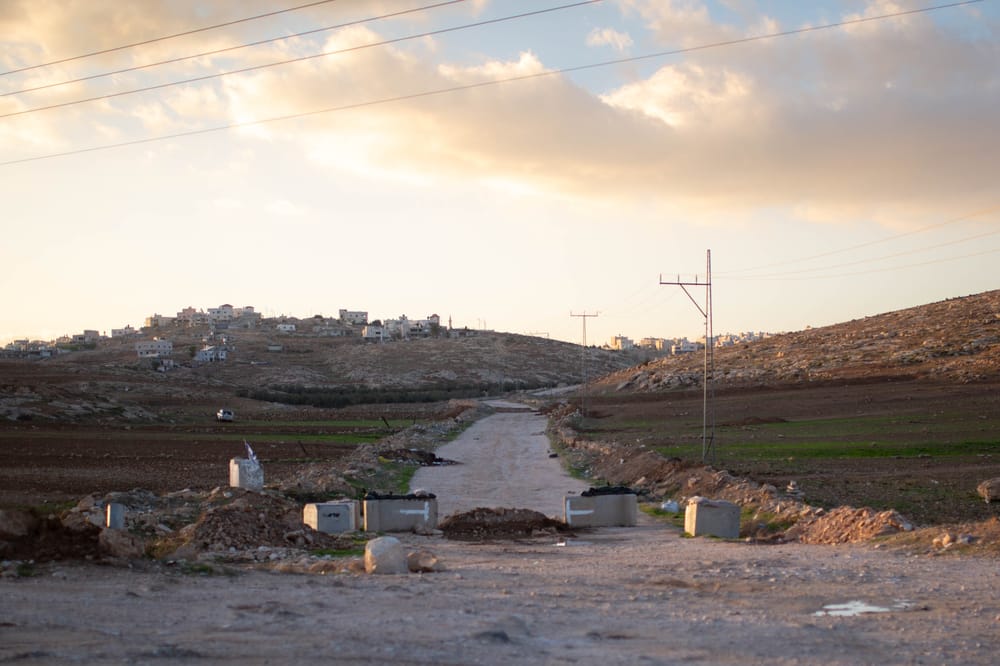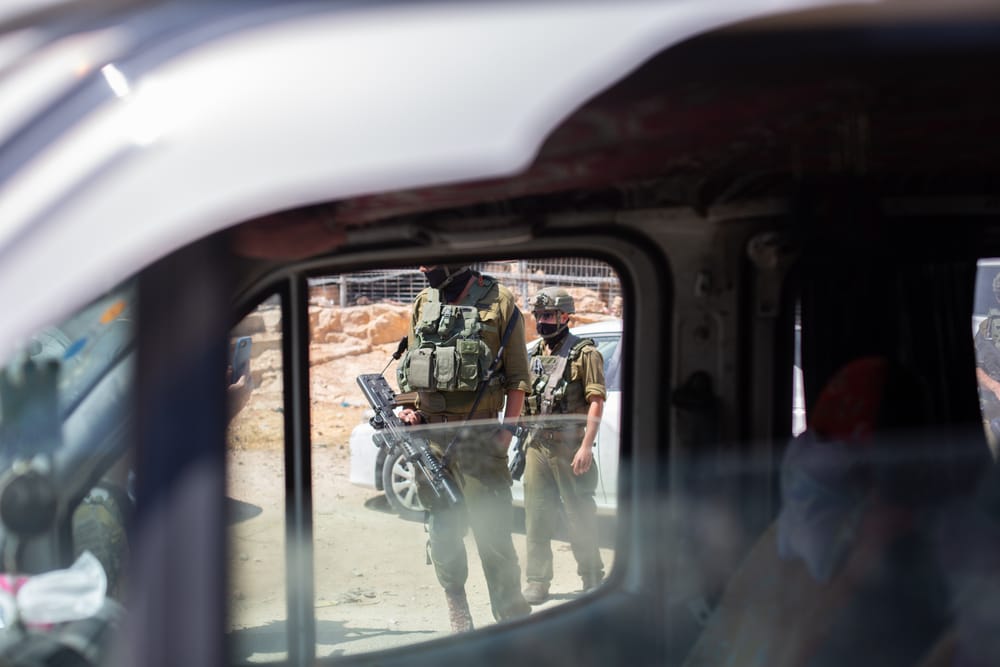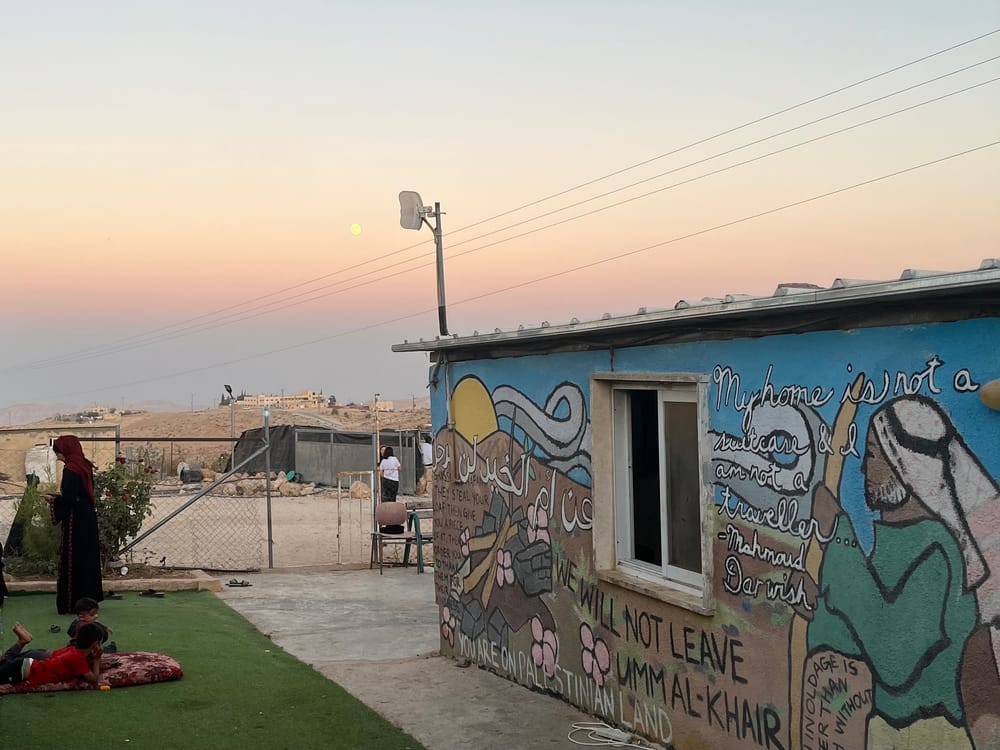‘There is not a blade of grass that is not affected’: a dispatch from Masafer Yatta
The violence is spreading and everyone is vulnerable.
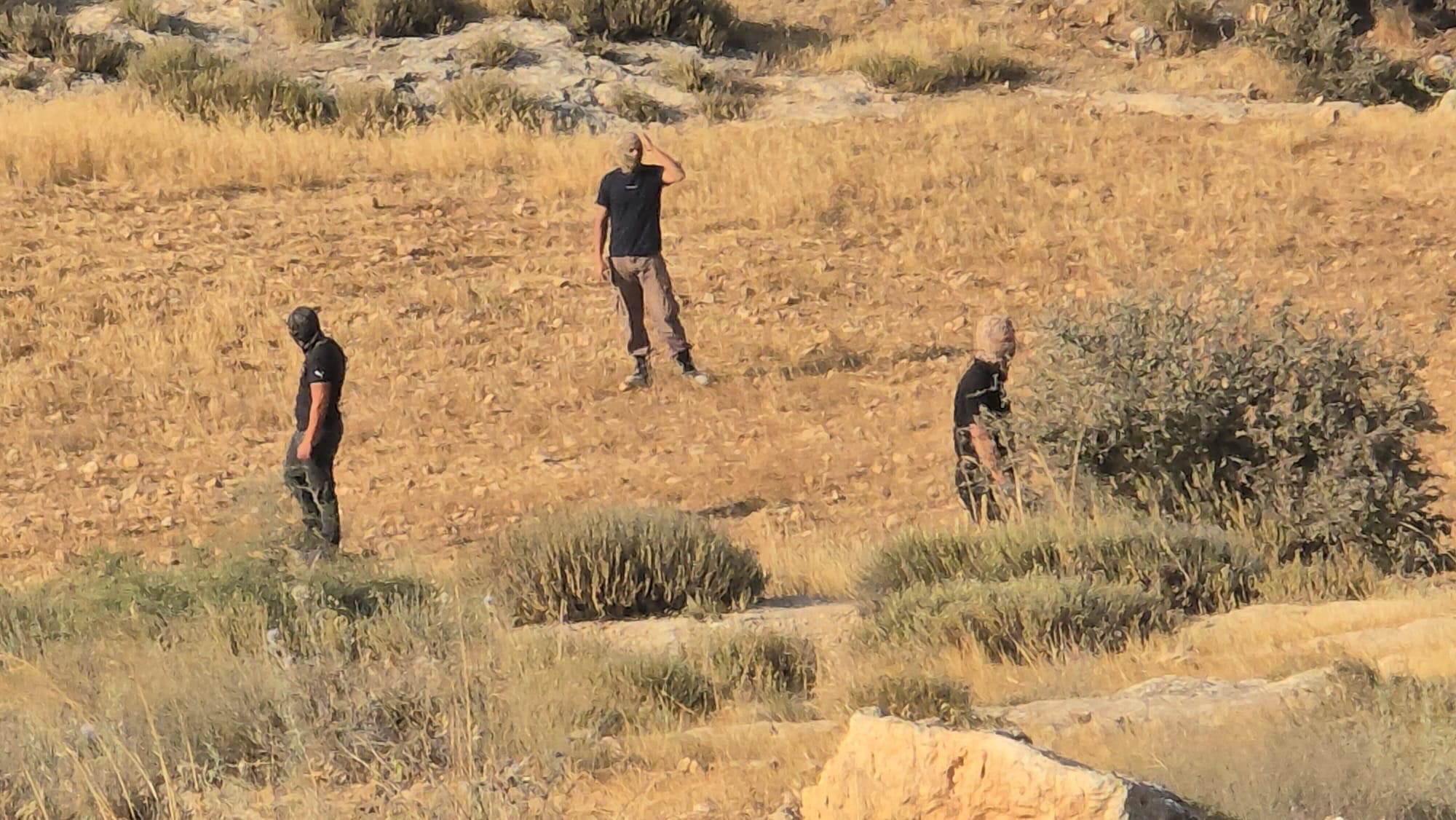
Settler violence is like a cancer that spreads very quickly in the body, destroying it, devouring it from the inside and pulling it towards death step by step. In Masafer Yatta, the settlers take over our lands, destroy our homes and physically assault the people, to the point that we do not sleep, neither day nor night. It is as if every moment our bodies expect to be brutalised.
I interviewed a student named Numan, who lives in Qawawis, one of the villages that make up Masafer Yatta. He recounted to me what the settlers did to him in the summer. On the evening of 26 August, a group of 25 settlers appeared outside his house, all of them masked, carrying sticks, iron bars, and knives. They assaulted Numan together with four Israeli solidarity activists. I could still see the bruises on his hands as he was speaking to me. He told me that they also threw a rock at his neighbour, Jibreen Musa Salman Abu Aram, causing multiple fractures in his back.
The settlers also attacked houses where women and children were sheltering, breaking the windows and releasing pepper spray through the cracked glass. Numan told me that many women and children who were inside lost consciousness. The settlers shattered cameras installed on residents’ homes, smashed windows, and ruined the sheep food by scattering it on the ground.
They also cracked the solar cells that supply the community with electricity, then completely destroyed the kitchen, including the stove and refrigerator, and vandalised many household items, scattered flour, rice, and other essentials on the floor.
In total, twelve people, including several children aged between one and 18 years old, were injured in the attack. Some received medical attention in the field, and some were taken to hospital.
Another story, from a different time and place in the region, I heard from Musa: “I live in the village of Khirbet Umm Nir in Masafer Yatta. I am married, and my wife and children live with me. My sons Amin and Ismail are both married and have three children each themselves. We live in a brick-and-tin house, and work in agriculture and livestock. To the west of my house, there is the archeological ruin of Susiya, which was built on the lands of the Palestinians who were expelled from it by the occupation in 1986.
Early in the morning of 15 July, I left the house to herd my sheep. As I do every day, I checked the area surrounding the house to make sure there were no settlers. I woke up my son Amin and asked him to accompany me in standing watch. He remained nearby the house, inspecting the area while I took out the sheep. I walked fifty metres from the house, when out of nowhere I was attacked by four masked settlers carrying wooden clubs. They had been lying on their stomachs among the rocks, waiting for us.
I tried to defend myself with the herding stick I was carrying, but they grabbed it from my hands. I could hear the sound of my son Amin screaming, and the settlers continued to beat me with batons on my head. I tried to deflect these blows with my hands and to curve my back to protect my head from the blows, so instead they would hit my back, feet, and hands. My son Amin rushed towards me to defend me, and as soon as he approached, the settlers fled towards the valley.
When my son Amin approached, I was unable to move, and blood was dripping from my hands. Amin helped me return home, and we woke the family. They called the Palestinian ambulance, which arrived in conjunction with the Israeli police, who informed us of the need to file a complaint. I was transferred to a hospital in the city of Yatta, where I was treated; x-rays showed a fracture in two fingers in the right hand, another fracture in my left hand, and a crack in my left forearm. There were also wounds in my legs, a crack in my right foot, a crack in one of my ribs, and bruises along my back.
I returned home from the hospital that day, and completed my recovery at home. I am now physically able to move – but I never leave my house on account of fear and anxiety. This was not the first attack carried out by the settlers against us in the area, and it won't be the last; they consistently prevent us from grazing our sheep on our lands, and from simply stepping foot there.”
I took two different examples, from two different places, and from two different times – each demonstrating the widespread suffering of Palestinians in Masafer Yatta from settler violence. Every village faces the same situation, and is under the same level of threat, and we the people feel the pain of the entire region in our every limb and bone. Before October 7, it used to be that the villages located in the “firing zone” were more vulnerable – but now the settlers attack and set up their violent outposts everywhere. There is not a blade of grass on our land that is not affected by this cancer.▼
Author
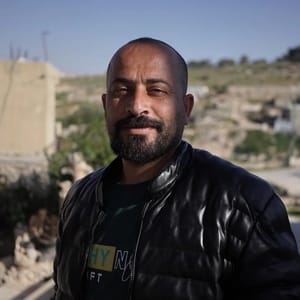
Hamdan Ballal Al-Huraini is a farmer, photographer, and human rights activist from Susiya in the West Bank.
Sign up for The Pickle and New, From Vashti.
Stay up to date with Vashti.
